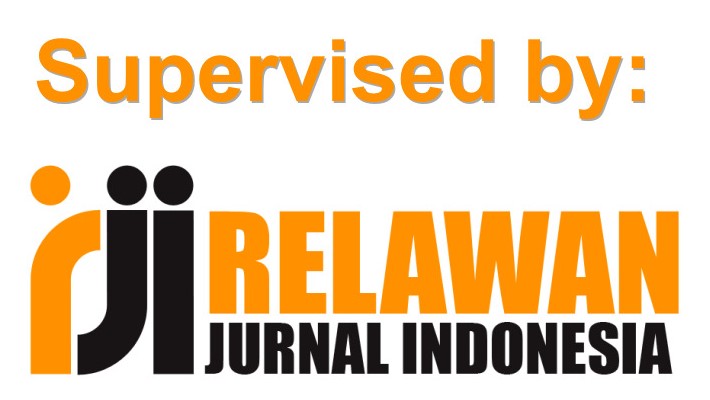IELTS Speaking Training for High School Teachers in Yogyakarta
DOI:
https://doi.org/10.31100/matappa.v3i2.385Keywords:
IELTS speaking, teacher development training, community serviceAbstract
References
Ameri-Golestan, A. (2016). Effects of teaching strategies and topic familiarity on Persian speaking IELTS candidates’ speaking scores. Modern Journal of Language Teaching Methods, 6(3), 44–50.
Aoki, S. (2014). Potential of voice recording tools in language instruction. Studies in Applied Linguistics and TESOL, 14(2), 128–141.
Brown, A. (2006). An examination of the rating process in the revised IELTS speaking test. IELTS Research Reports, 6, 1–30.
Hasanah, A. (2012). Pengembangan profesi guru [Developing teacher profession]. Bandung: Pustaka Setia.
Issitt, S. (2008). Improving scores on the IELT S speaking test. ELT Journal, 62(2), 131–138. https://doi.org/10.1093/elt/ccl055
Jacobs, G. M., & Hall, S. (2002). Implementing cooperative learning. In J. Richards & W. A. Renandya (Eds.), Methodology in Language Teaching (pp. 52–58). Cambridge: Cambridge University Press.
Namdar, S., & Bagheri, M. S. (2012). The effect of instructing impression management behaviors on maximizing applicants’ performance in the IELTS speaking test. English Language Teaching, 5(4), 150–160. https://doi.org/10.5539/elt.v5n4p150
Nation, I., & Macalister, J. (2010). Language curriculum design. New York: Routledge.
Presiden Republik Indonesia. Undang-undang Republik Indonesia nomor 12 tahun 2012 tentang pendidikan tinggi [Law of the Republic of Indonesia number 12 year 2012 on higher education] (2012). Jakarta: Presiden Republik Indonesia.
Richards, J. C., & Renandya, W. A. (2002). Methodology in language teaching: An anthology of current practice. Cambridge: Cambridge University Press.
Sekolah Tumbuh. (2019). Sekolah Tumbuh. Retrieved July 8, 2019, from https://sekolahtumbuh.sch.id/
Sim, M.-A., & Pop, A.-M. (2016). Teaching speaking skills. The Annals of the University of Oradea, (1), 264–273.
Subekti, A. S. (2018a). An exploration of foreign language anxiety in the Indonesian university context: Learners’ and teachers’ voices. TEFLIN Journal, 29(2), 219–244.
Subekti, A. S. (2018b). Investigating the relationship between foreign language anxiety and oral performance of non-English major university students in Indonesia. Dinamika Ilmu, 18(1), 15–35.
Subekti, A. S. (2019). Situational willingness to communicate in English: Voices from Indonesian non-English major university students. Indonesian Journal of English Language Teaching and Applied Linguistics (IJELTAL), 3(2), 373–390.
Subekti, A. S. (2020). Self-perceived communication competence and communication apprehension: A study of Indonesian college students. EduLite: Journal of English Education, Literature, and Culture, 5(1), 14–31.
Subekti, A. S., & Susyetina, A. (2019). Pelatihan mengajar dan menulis laporan hasil belajar dalam Bahasa Inggris untuk guru SMP/SMA Tumbuh Yogyakarta [Training on teaching and writing learning reports in English for teachers of Tumbuh High School Yogyakarta]. Jurnal Pengabdian UntukMu negeRI, 3(2), 89–96.
Subekti, A. S., & Wati, M. (2019). Facilitating English Club for high school students: “Life to the max.†Jurnal Pengabdian kepada Masyarakat, 9(2), 108–116.
Universitas Kristen Duta Wacana. (2017). Nilai-nilai universitas [Core values of the university]. Retrieved August 4, 2019, from https://www.ukdw.ac.id/profil/nilai-nilai-ukdw/
Yanju, S., Mei, S. Y., & Mohamed, Y. (2017). Implementation of voice recording activities in improving Mandarin oral fluency. European Journal of Interdisciplinary Studies, 3(4), 56–61.
Downloads
Additional Files
Published
Issue
Section
Citation Check
License
Jurnal ini memberikan akses terbuka langsung dengan prinsip bahwa membuat penelitian tersedia secara bebas untuk publik mendukung pertukaran pengetahuan global yang lebih besar.
Semua artikel yang diterbitkan dapat di Akses secara Terbuka atau Gratis untuk semua orang baik untuk dibaca maupun diunduh di bawah lisensi CC-BY.
Ppenulis mempertahankan kepemilikan hak cipta untuk artikel mereka, tetapi penulis memberikan izin kepada orang lain untuk menggunakan konten publikasi di Matappa secara keseluruhan atau sebagian asalkan karya aslinya dikutip dengan benar.
Hak cipta mencakup hak eksklusif untuk mereproduksi dan menyampaikan artikel dalam semua bentuk dan media, termasuk cetak ulang, foto, mikrofilm dan reproduksi serupa lainnya, serta terjemahan. Reproduksi bagian manapun dari jurnal ini, penyimpanannya dalam basis data dan transmisi dengan bentuk atau media apa pun, seperti elektronik, salinan elektrostatik dan mekanik, fotokopi, rekaman, media magnetik.

MATAPPA is licensed under a Creative Commons Attribution 4.0 International License.









